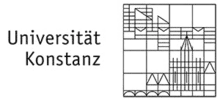
Importance of research autonomy when employed in academia
Read a summary using the INOMICS AI tool
One of the great advantages of performing your research within an academic setting rather than a commercial one is the degree of research autonomy which you posses. This means that you have the freedom to pursue the work which you think is interesting and worthwhile, and to pick the methods and research approaches which you find to be most suitable. In fact, having flexibility and freedom over your work was identified as one of the top advantages of working in an academic institution in our 2015 Academic Institutions Report. Clearly, this is an important issue which is one of the major differentiating factors between academia and industry.
Research autonomy leads to higher-quality work
Everyone knows that happier workers tend to produce better work. But this goes further in the case of research autonomy. Deciding which topics are ripe for investigation and what the best methods would be to perform that investigation is something that only someone highly qualified and experienced in the field can do, so it makes sense that academics are in the best place to make these decisions about their own work. For example, Switzerland is a country which despite its small population size, has a large number of internationally-renowned research institutions and has a reputation for producing world-leading research. This success of high scientific productivity has been linked to the high level of autonomy, openness, and excellence within Swiss institutions.
The impact of the growth of higher education
In the last decades, more and more people have begun attending university, encouraged by the demands of the workplace and by social and cultural expectations. This has resulted in a huge growth of higher education institutions, and in some cases, a corresponding growth in the workloads and responsibilities of university employees. A common complaint to hear is that universities nowadays are run more like businesses than like independent research institution. Of course, this is a broad generalisation and certainly does not apply to every institution. But it is worth noting that many academics feel pressures to show results and meet targets, which may not be in line with their personal research goals. Parallel to this, in the last decades during times of economic hardship, many countries have seen cuts to or freezing of the public funding of universities and other research institutions. This has lead to even greater pressure to produce more research from less funding.
Publish or Perish
One common issue is that academic hiring committees are frequently more interested in the quantity of papers which a applicant has published than in their quality. This, combined with pressure from university management for researchers to pump out large numbers of papers, has lead to a “publish or perish” culture in which researchers must be constantly prioritising getting their work published above performing their best-quality work. A common phenomenon is the “least publishable unit”, in which work is split into needlessly small sections so that one piece of research can be spread out over two or three publications, resulting in a larger number of publications in total.

Threats to research autonomy
In relation to research autonomy, these issues have come into direct focus with schemes like the UK government's Research Assessment Exercise / Research Excellence Framework. This system linked institutional funding with the quality of publications coming out of that institution, with quality mostly assessed on the basic of the “impact” of the research. The concept of impact was skewed towards public policy and impact outside of academia, which many felt undermined their academic freedom. The need for a researcher to prove that their research had a measurable impact on public life was particularly difficult for humanities scholars and niche researchers, whose work did not translate into direct public benefits. This is an example of how research autonomy can be threatened by academic or governmental policy. The understandable desire to create a system with which non-experts can assess the quality of researchers' work can inadvertently lead to a loss of autonomy and a pressure on researchers to game the system rather than producing their best-quality work.
Research autonomy is clearly one of the major advantages of choosing to work in an academic rather than commercial setting. However, the changes to the higher education industry which have taken place over the last decade have had a large effect on how much autonomy researchers can expect. It's important to have honest discussions with fellow researchers in any institution about their experiences with research autonomy before taking up a position.
-
- Postdoc Job
- Posted 1 week ago
Research Assistant (Postdoctoral Fellow) (f/m/d)
At University of Bremen in Bremen, Allemagne
-
- PhD Program, Program, Postgraduate Scholarship
- Posted 3 days ago
PhD Program in Management - 11 Fully Funded Scholarships
at Luiss Guido Carli University of Rome in Rome, Italie
-
- Postdoc Job
- Posted 1 week ago
6-Year Postdoc with Option for a PermanentContract (f/m/d, 100%)
At ZEW – Leibniz-Zentrum für Europäische Wirtschaftsforschung GmbH Mannheim in Mannheim, Allemagne













